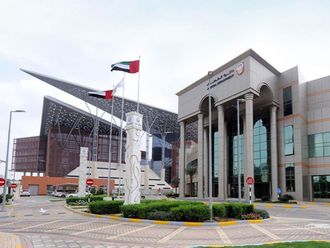
Abu Dhabi: Ensuring that public health is maintained and safety ensured is a responsibility shared by government authorities and residents alike, and a senior official in the capital believes this duty is being taken more and more seriously by the day.
Not only do more people care about how the capital city is perceived, but they are willing to urge others to take better care of the environment, said Khalifa Al Rumaithi, director of public health at the Municipality of Abu Dhabi City.
“This is an encouraging sign for us public officials. Just recently, I came across a resident speaking to a motorist who had thrown litter from his car onto the street. She insisted that he park the car and put the waste in a designated bin. We have a number of initiatives to enhance public health and safety, but people who do their bit just make it all much easier,” Al Rumaithi said.
He went on to shed some light on the municipality’s key ongoing initiatives:
Gulf News: Over the last few years, the municipality has undertaken a concerted drive to deter people from littering, including fines for throwing waste, spitting and chewing gum. Has this campaign changed the way people perceive littering?
Al Rumaithi: Since the campaign was started, we have increased the number of inspectors, especially in residential areas. As a result, we issued 7,417 fines in 2014 for offences like chewing gum on the streets and littering, which currently result in penalties of Dh500 each, and for spitting and throwing cigarette butts that invite fines of Dh100 and Dh200 respectively. By May, a new law will be issued that will increase these fines to Dh1,000 each and we hope this will act as a further deterrent. There is less littering in the city, but the problem continues to persist in industrial areas and other locations with large number of bachelors.
Are there plans to reach out to residents and create better awareness of the negative effects of littering?
So far, we have distributed brochures and organised lectures at public places and offices, such as at the airport and worker accommodations. These have helped make people aware of the regulations as soon as they come to the city. But we understand that people come to the UAE from different backgrounds, and we need to appeal to them individually. So we are in talks to introduce more social gatherings, where we can invite residents to share a meal and socialise with one another while we spread awareness on these regulations. We may need private sponsors to organise these sorts of social events, and perhaps even invite well-loved celebrities, but we believe they can be more effective in reaching out to residents, especially workers who are here without their families.
Salons and beauty parlours have long been the focus of many public health inspections. In 2012, the municipality introduced a regulation for all salon employees to be trained about public health and hygiene. How has this helped?
So far, 20 per cent of all salon staff, numbering more than 2,000, have attended the hygiene and safety course. This training covers topics such as cleanliness, proper dress code, maintenance and sterilisation of equipment, and what illnesses can be spread without proper measures. Just this level of basic training itself led to a 30 to 40 per cent decrease in customer complaints, which mainly centre around infections caused by nail treatments, rashes from black henna use and hairfall from using unsafe hair dyes.
By the end of the year, all salon staff must have undergone the training; otherwise, the establishment’s licence will not be renewed. This is an important measure because in just the last two years or so, the number of beauty centres and salons has risen from 1,000 to 1,400 in Abu Dhabi city. And, going forward, we hope to introduce more advanced courses in collaboration with the Health Authority Abu Dhabi.
Laundries have undergone a major facelift since 2011. What are the major changes that were implemented to make laundries cleaner?
The major stipulation was that laundries have enough space to conduct their activities in a hygienic manner, especially as we often used to come across outlets that used to simply leave customers’ clothes on the floor. So the regulation states that all laundries offering washing and ironing services must be at least 40 square metres in size, while ironing outlets must be at least 30 square metres. All 700 outlets in the city must meet these requirements by July 2015.
Fortunately, many laundry owners have not only taken over much bigger spaces but now offer services in a very professional and well-kept environment.













